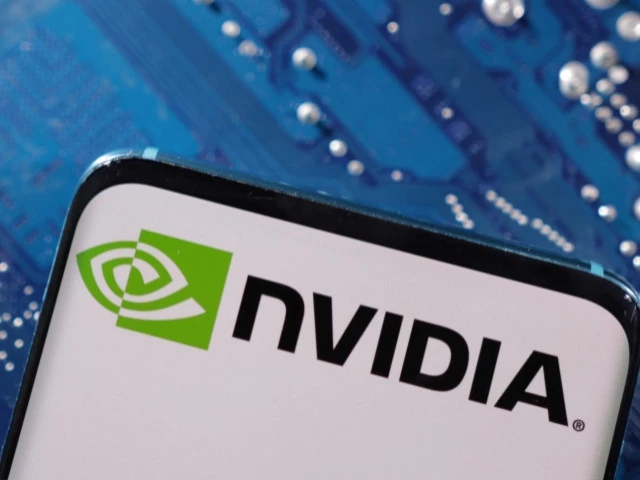Nvidia in crossfire as China alleges antitrust violations
Nvidia earned 13% of sales in China; CEO Huang visited thrice, calling AI sales key to US global leadership

China on Monday accused Nvidia of violating its anti-monopoly law, the latest escalation in a trade war with the United States that has claimed the US chipmaker as collateral damage.
The State Administration for Market Regulation (SAMR) said a preliminary probe had found possible breaches in Nvidia’s business practices. The announcement came as US and Chinese officials met in Madrid for trade talks where chip technology is on the agenda.
US Treasury Secretary Scott Bessent called the timing “poor,” with analysts saying the move gave Beijing leverage. The two countries have exchanged tariffs and regulatory measures in recent months after US President Donald Trump imposed sweeping duties, later reduced to 30%, while threatening to ban TikTok. China responded with 10% tariffs and antitrust probes into US firms such as Google.
Read More: Engineers unveil light-based chip that boosts AI efficiency up to 100-fold
“This is a warning that if the US export control paradigm continues as before, there will be consequences, and China is willing to inflict damage on US companies,” said Zhengyuan Bo, partner at research firm Plenum.
Nvidia last year generated 13% of its sales in China. CEO Jensen Huang has visited three times this year to reassure Beijing of his commitment, describing AI sales to China as vital for US global leadership in the sector.
Despite strong demand from Tencent and TikTok parent ByteDance, China has discouraged purchases of Nvidia chips as it seeks to reduce reliance on US technology. Last month Beijing also asked Nvidia to clarify whether its H20 chip for China posed security risks.
Nvidia said it complies with the law and will “continue to cooperate with all relevant government agencies.” Its stock fell 2% before recovering to trade flat in New York.
Also Read: Tech giants’ data centres could consume 2% of Sydney’s water supply
Mellanox commitments
SAMR did not specify how Nvidia may have violated antitrust rules, which carry fines of 1% to 10% of annual sales. China approved Nvidia’s 2020 acquisition of Israel’s Mellanox Technologies on the condition it supply high-end GPUs to the Chinese market. But US export controls later blocked sales of Nvidia’s most advanced chips.
“The real concern is China could restrict Nvidia’s ability to sell Mellanox networking equipment, a business worth billions annually,” said Ray Wang, analyst at Futurum Group.
Analyst Lian Jye Su at Omdia added Nvidia may be forced to sell chips in China without Mellanox’s bundled technology.
Still, Plenum’s Bo said Beijing’s move should not be seen as an attempt to push Nvidia out entirely, but as part of its push to grow domestic AI chip capacity.


















COMMENTS
Comments are moderated and generally will be posted if they are on-topic and not abusive.
For more information, please see our Comments FAQ